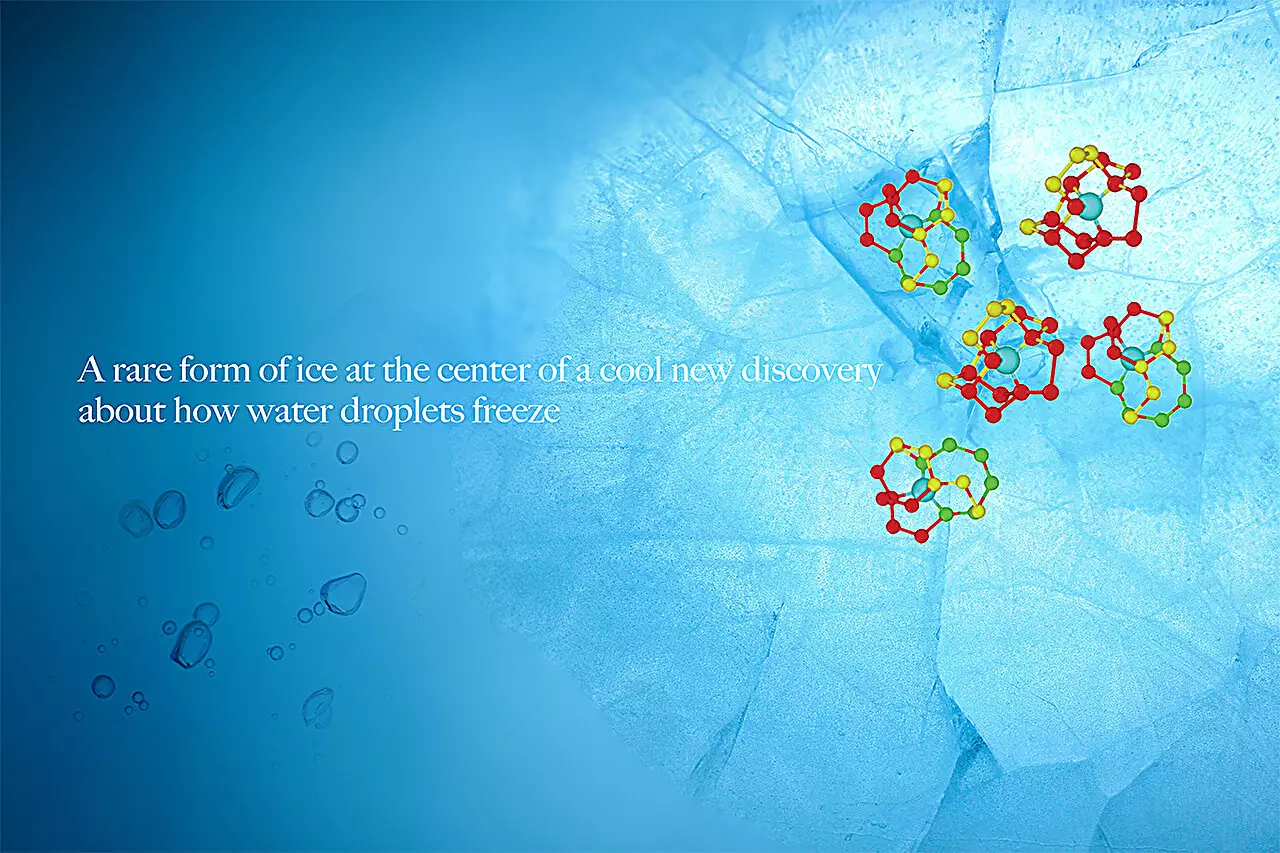Ice formation is a process that we often take for granted, assuming that all ice is the same. However, researchers from Japan have recently uncovered a new type of ice known as ice 0. This unique form of ice has the ability to seed the formation of ice crystals in supercooled water, challenging our traditional understanding of how ice forms.
In a study published in Nature Communications, researchers from The University of Tokyo’s Institute of Industrial Science revealed that ice 0-like structures can cause water droplets to freeze near their surface rather than at their core. This discovery has significant implications for our understanding of ice nucleation, as it demonstrates that crystallization can occur just below the water’s surface, rather than solely at a solid surface.
Lead author Gang Sun explains, “Simulations have shown that a water droplet is more likely to crystallize near the free surface under isothermal conditions.” This finding resolves a long-standing debate about the location of ice crystallization, highlighting the importance of ice 0-like structures in the crystallization process.
The implications of this research extend far beyond the realm of ice formation. Senior author Hajime Tanaka emphasizes the potential impact on fields such as climate studies and food sciences, where water crystallization plays a crucial role. By gaining a deeper understanding of how ice forms, researchers can make significant contributions to a wide range of scientific disciplines.
One area where this research could have a significant impact is meteorology. The formation of ice via ice 0-like precursors may have a more pronounced effect on small water droplets found in clouds, affecting weather patterns and precipitation. Additionally, the insights gained from studying ice formation could benefit technology, ranging from food sciences to air conditioning.
The discovery of ice 0 and its role in ice formation sheds light on the complexity and diversity of ice structures. By unraveling the mysteries of ice nucleation, researchers can make valuable contributions to a wide range of fields, paving the way for new discoveries and applications in the future.


Leave a Reply